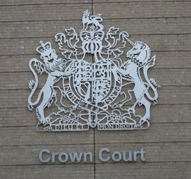An ‘unprecedented and very serious’ backlog of crown court cases concerns us all, say criminal justice inspectorates in a report on the effect of the pandemic on the criminal justice system. While the system coped ‘reasonably well’ with the immediate challenges of the pandemic, most crime types having fallen with the first lockdown in March 2020 increased back to pre-pandemic levels over the summer.
The inspectors found numerous examples of serious cases cancelled at short notice, despite the offences having taken place a long time before. Social distancing has meant that jury trials have been harder to do; see-through screens are being fitted in courtrooms and jury deliberation rooms. The backlog is increasing at crown courts; ‘it is not unusual to find trials being listed into 2022’. Cases are listed which will plainly not be heard because of lack of court time, the report says. The report warns that an ‘increasingly-frustrated remand population has the potential to have a serious adverse effect on the stability of reception prisons’.
Inspectors stress that the backlog is a problem of the system not only the courts; and it is ‘the responsibility of government to respond on a whole-system basis’. Even before covid, the system had ‘significant failings’; sectors were ‘already fragmented and significantly under-resourced’.
Chief Inspector of Probation Justin Russell said: “The covid-19 pandemic has meant severe delays and numerous cancellations throughout 2020, and this has had a negative impact on everyone involved.
“Delays mean victims must wait longer for cases to be heard; some will withdraw support for prosecutions because they have lost faith in the process. Witnesses will find it difficult to recall events that took place many months ago, and prosecutors waste significant periods of time preparing for cases that do not go ahead.
“Those accused of crimes face delays in their opportunities to defend themselves and seek acquittal. Defendants are kept on remand for longer periods, and prisoners continue to experience a highly restrictive prison regime or experience delays in accessing rehabilitation programmes and support through probation services.
“Court backlogs have a ripple effect across all criminal justice agencies and must be dealt with to ensure fair justice for victims and perpetrators of crime. This is a whole-system problem that requires a whole-system solution.”
The four Chief Inspectors – Justin Russell (Probation), Sir Thomas Winsor (Constabulary), Charlie Taylor (Prisons) and Kevin McGinty (Crown Prosecution Service) – have published or are due to publish separate reports into how each service has coped with the pandemic. They are calling for criminal justice agencies to work closely together to respond to the pandemic, and for the Government to provide national direction as well as the funding, time and access to expertise to help recovery.
For the 31-page report in full visit https://www.justiceinspectorates.gov.uk/.
Meanwhile a report by Her Majesty’s Inspectorate of Constabulary and Fire & Rescue Services says that some firefighters were asked by their union, the FBU, not to volunteer to support the NHS Test and Trace system, and covid-19 vaccination.









